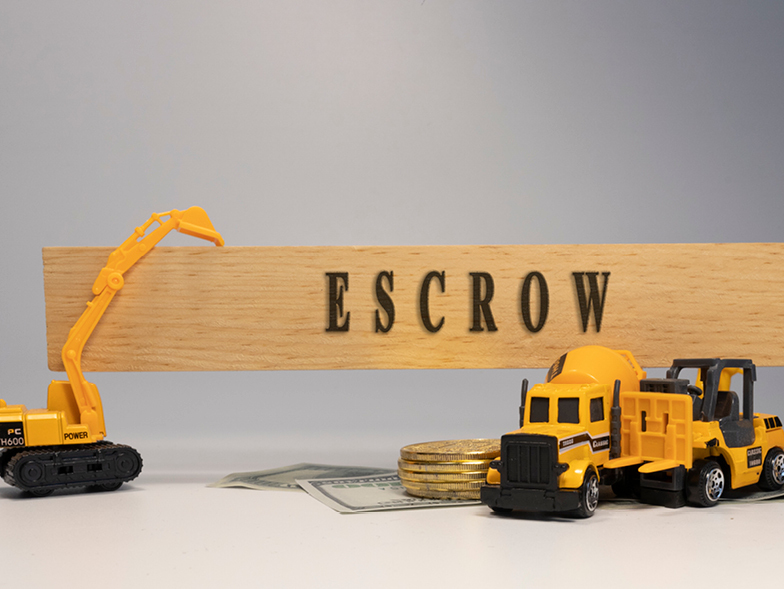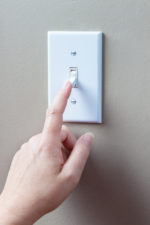A Guide to Buyer Closing Costs
As with every real estate transaction, there are closing costs associated with completing the sale. These costs can vary widely depending on your local government, lender, as well as the month and week of your closing. Knowing all these potential fees can help you to better prepare ahead of time.

Buyer closing costs
Closing costs are directly tied to the home’s sales price and the county and state in which you are purchasing your home (some of the costs are determined by their mandated fees). These costs can range between 2 percent and 6 percent of the purchase price. The following is a list of charges you can expect to incur on your closing statement.
Application fee
This is a fee your lender charges to initiate the application process. The Truth in Lending Act (TILA) requires them to disclose any costs that are associated with your loan— depending on the lender, this fee typically ranges from $100 to $350.
Appraisal fee
The property must be appraised by a licensed property appraiser to verify that the home’s selling price doesn’t exceed its fair market value. It is also used to determine the loan-to-value (LTV) ratio. You can expect to pay between $350 and $500 for this service.
Attorney fee
What state you’re in will often determine if an attorney is needed to oversee and complete your real estate transaction. However, some buyers prefer to hire an attorney even if it’s not a state requirement. Though this fee varies with each attorney, the services usually include a thorough review of your sales contract, assistance with any contractual challenges along the way, and legal representation at closing.
Discount points
Many loan programs enable you to lower your mortgage interest rate by buying up-front discount points. Each point costs 1 percent of the loan amount. For example, if you purchase a home for $300,000 and seek a $270,000 loan, one discount point will cost you $2,700.

Escrow payments
Each lender requires all deposit monies to be held in a separate bank account, known as an escrow account. This includes any other payments that you make before closing. It’s also customary for property taxes and your homeowners insurance to be held in the escrow account after closing. The servicer of the loan makes these payments on your behalf to guarantee the lender that these payments will be made.
Homeowners association (HOA)
Not all communities have HOA fees, however, if there is one, the governing body of the HOA dictates the cost of the application and initiation fees. As a buyer, you’ll be required to pay these charges before taking homeownership of your new home.
Homeowners insurance
Lenders will require proof that your homeowners insurance policy has been paid in full for one year at the time of closing and before you take ownership of the property. It must cover the full value of your home, which is typically the purchase price.
Loan origination or lender fees
These fees are part of the lender’s costs to process the loan, which covers their administrative, underwriting, and processing fees. These costs are generally around 1 percent of the loan amount. Some lenders will charge a higher interest rate rather than charging an origination fee.
Prepaid daily interest charges
This cost is to cover any accrued interest on your mortgage between the date of closing and your first mortgage payment.
Private mortgage insurance (PMI)
PMI is a monthly charge rolled into your mortgage payment if your down payment is less than 20 percent. This insurance protects the lender if you stop making payments. Sometimes, there’s an up-front, one-time premium charged at closing for this protection.
Property taxes
In addition to the escrowed property taxes, you may also need to pay daily prorations. For example, if there are six months left until the end of the tax cycle and the seller has paid their yearly taxes in full, both seller and buyer will be debited and credited said amount, respectively. These are also called prepaid items.
Rate lock fee
This is an optional fee charged by the lender to guarantee you a specific interest rate for a limited period, usually from the preapproval and closing. A rate lock protects you against a sudden rise in interest rates.

Survey fee
A land surveyor must conduct a property survey to verify the property’s boundary lines. As a buyer, you want to be sure there are no encroachments or easements that could affect your use of the property. If this is not properly done, it can affect the value of your home in the future.
Title insurance
Title insurance ensures that the title is free and clear of all liens and encumbrances. The cost to do a title search and receive the insurance is approximately 0.5 percent to 1 percent of the home’s purchase price. Depending on your state, may determine who pays the title insurance. For example, in Florida, it’s customary for the seller to purchase the title, whereas, in New Jersey, it’s typically the buyer who pays.
Underwriting fee
The underwriting fee ranges from $300 to $900. This is a charge imposed by the lender to verify your financial information, income, employment, and credit history before loan approval.
Up-front mortgage insurance (UFMI)
Federal Housing Administration (FHA) loans collect an insurance premium of 1.75 percent of the base loan amount. This fee can also be rolled into your mortgage.
Other fees
Several miscellaneous fees are generally not high but in total can add up. Also, be aware of junk fees, such as processing and documentation fees, that a lender may insert in your closing statement.
Credit report
Your lender will run your credit before your loan can be approved—a minimal cost that ranges from $20 to $40.
Courier fee
If you have an in-person closing, a courier may be used to expedite the delivery of your closing documents. This fee is usually between $20 and $30.
Escrow closing fee
The escrow agent, title or escrow company, or attorney that performs the closing charges a fee for this service that ranges from $300 to $700.
Flood certification
Depending on where you live, you may be required to pay a $20 fee for a flood certification showing proof that your home is not in a flood zone.
Pest inspection
Most lenders will require a pest inspection before completing your loan approval. This cost can range from $100 to $500.
Recording fees
Your deed, bill of sale, mortgage, and title must be recorded with your county office. Each varies by county but generally hovers around $125.

Tax service fee
This $50 fee is charged by your lender and is for a tax service to make sure all tax liens are paid on the home.
Wire transfer
Just before closing, you’ll need to wire money from your bank account to the third-party holding escrow. These funds should include your remaining down payment and all other outstanding closing costs. This fee ranges between $25 and $50.


















